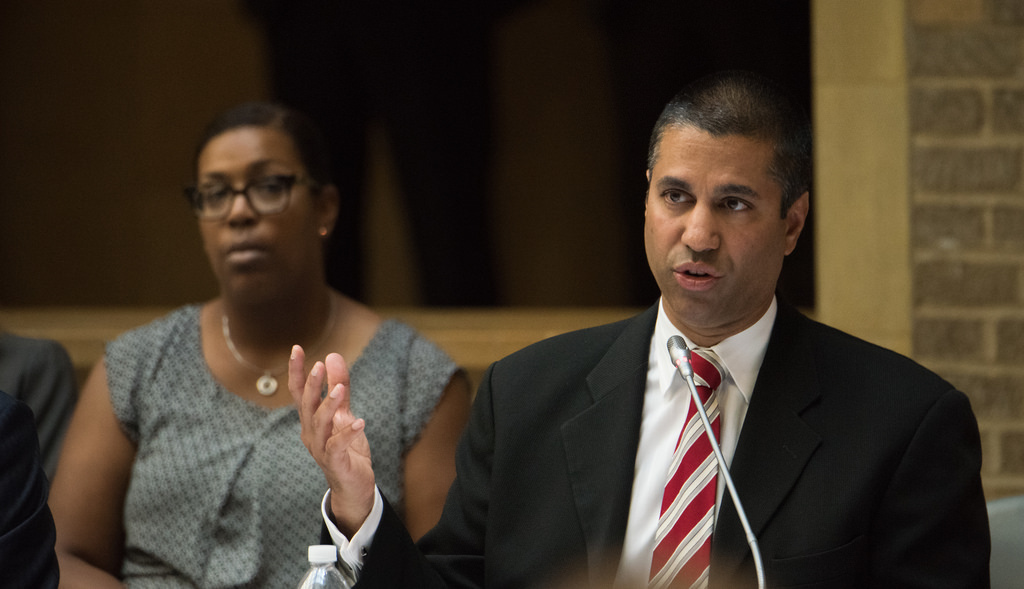Facts on Net Neutrality sedate fears
POSTED January 16, 2018
The repeal of net neutrality has created a slew of fears for the American people, however, not all of these “fears” are things we should necessarily be afraid of. Ideas have been thrown out there like internet services being split into packages, content being preferred, smaller ISPs being unable to compete with larger ones, content being blocked, and even the ISPs conducting themselves as if characters from The Purge, all of which sounds scary, but doesn’t have to be if you know the facts and reasoning behind these misconceptions.
The first horror is that internet services will be split into a variety of packages that will each come with individual price tags. I must say that this could be in our future, it isn’t something that could never happen, however it is quite unlikely that it will occur. According to FCC Chairman Ajit Pai, companies could already do this under net neutrality. Pai stated before the repeal vote that “the reason that Internet service providers aren’t offering such packages now, and likely won’t offer such packages in the future, is that American consumers by and large don’t want them.”
The possibility of content being preferred has also left some uneasy. Preference, however, could actually be a good thing. An author for the Washington Examiner, Casey Given, asks “Have you ever had trouble streaming Netflix on a Sunday night?” and responds with “If so, you have been the victim of net neutrality.” She then goes on to explain that some traffic requires more bandwidth than others, and suggests that “ISPs should be allowed to experiment with appropriate traffic shaping to ensure that customers receive the best service for their streaming needs.” In a separate article the Washington Examiner gives an example that suggests that internet “fast lanes” may not be a bad thing. Considering telemedicine as a growing part of healthcare today, they ask “Wouldn’t you want your surgeon to be able to buy access to an express lane in which a network was allowed to grant privilege to certain data over others?” and retort with “data bytes flowing between an operating room and a surgeon [should] take precedence over bytes of 100 dudes Googling to find out whether Jennifer Lawrence is married.”
Another argument for fear is that smaller ISPs wouldn’t be able to compete with larger ISPs. To the contrary, Ajit Pai spoke of many letters received from smaller ISPs complaining about the effects of net neutrality. One letter in particular from Ron Smith, the President and CEO of Bluegrass Cellular said that net neutrality’s “regulatory framework for wireless broadband services hinders our ability to meet our customer[s]’ needs, burdens our companies with unnecessary and costly obligations and inhibits our ability to build and operate networks in rural America.” A huge chunk of South Dakota is “rural America”, and thus we should be concerned that net neutrality was hindering small ISPs’ networks. Taking this into account, Pai, before the vote, declared that by getting rid of net neutrality “Broadband providers will have more incentive to build networks, especially to underserved areas,” “rural America” included.
A concern for content being blocked by ISPs has also arisen. Sean Moran, an author for Breitbart states in an article that “companies such as Google, Facebook, and Twitter criticized the FCC’s net neutrality repeal, arguing that it will allow Internet service providers (ISPs) such as Comcast or Verizon to block, throttle, and prefer content at will.” Pai notes that Twitter along with Google and Facebook “are in fact deciding what content they [users] see. These providers routinely block or discriminate against content they don’t like.” He gives examples of YouTube censoring conservative radio talk show host, Dennis Prager, and Twitter blocking Representative Blackburn from advertising a pro-life message. As far as ISPs blocking, Pai believes that a free market would take care of this.
A final misconception to be addressed is that the ISPs will be unpoliced and harmful to consumers. Pai reassures Americans that “we are moving from heavy-handed regulation to lighttouch regulation, not a completely hands-off approach.” He also rebuts that “the plan would restore the authority of the Federal Trade Commission, America’s premier consumer protection agency, to police the practices of Internet service providers. And if companies engage in unfair, deceptive, or anticompetitive practices, the Federal Trade Commission would be able to take action.” In layman’s terms, the FTC would police the ISPs instead of the FCC.
The ISPs will not turn the internet into some sort of dystopian horror film. The repeal of net neutrality is not the government turning its back on regulation, it’s a light-touch approach to allow capitalism to thrive while still leaving the FTC to keep ISPs in check.
